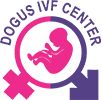Cyprus In Vitro Fertilization (IVF)
What is IVF?
IVF method is applied to couples who cannot conceive normally and is an assisted reproductive technique preferred for many years. In vitro fertilization is the most preferred and most common treatment for infertility today.
In cases of unexplained infertility and infertility caused by infection, blocked tubes, low sperm quality, being overweight and aging, couples can have a baby through in vitro fertilization method.
In vitro fertilization is a process of embryo formation through fertilization where an eggs, which are female reproductive cells, are combined with sperms, that are male reproductive cells, under laboratory conditions. Pregnancies that occur after transfer of embryos to the prospective mother under laboratory conditions are not different than natural pregnancies.
The only difference between in vitro fertilization and natural pregnancy is that IVF occurs under laboratory conditions and fertilized eggs are placed into the woman’s womb.
Does Age Matter?
In vitro fertilization can be applied until the age of 45 years to women whose ovarian reserve is found to be good as a result of hormone tests and ultrasonography. Women’s ovarian reserve and quality of egg structure diminishes after the age of 35 years. Success rate of in vitro fertilization decreases despite the suitable number of eggs.
Women who resort to in vitro fertilization after the age of 38 years are recommended to get genetic test done for their embryos by use of preimplantation genetic testing (PGT). As such, risk of abnormality caused by age is reduced and chance of having a healthy baby is increased.
Men continue to produce sperm at every age. However; sperm count and motility and quality of structure diminishes due to aging. Moreover; it is thought that sperm DNA damage increases in men aged over 55 years. As DNA damage increases, the chance of having healthy embryos decreases and change of pregnancy is reduced.
Who Should Resort to This Method?
- Blocked tubes
- Ovulation abnormalities
- Endometriosis
- Polycystic over syndrome
- Myoma
- Sperm production and function disorders
- Unexplained infertility
- Genetic defect
- Recurrent pregnancy losses
Treatment Process and Steps
The first step of in vitro fertilization is the training given by IVF coordinator. Information is provided regarding tests which must be done at this step, procedures, treatment plan and how the process will be carried out. Moreover, the methods of administration of the medicines that you will take over the course of treatment are described.
In women with regular menstrual cycle, one egg develops every month. The aim of medication used for in vitro fertilization is to increase the number of these eggs.
Treatment starts with hormone tests and ultrasonography performed on the day 2 or 3 of menstrual cycle. If conditions are suitable for treatment, eggs are stimulated through medication. Ultrasound and blood tests are applied in order to monitor egg development and adjust necessary drug doses during administration of these drugs. The development period of eggs is 10 days approximately.
When the development or maturation process of eggs are completed, egg trigger shot is administered and egg collection is planned for the following 36th hour. In egg collection procedure, eggs that have developed are taken to the laboratory under general anesthesia. Duration of procedure is approximately 30 minutes. Eggs are fertilized by the sperms that are taken from the male partner on the same day.
Fertilized eggs are kept in heat- and gas-controlled culture medium in a laboratory for 3 to 5 days for growth. Embryos which grow well at the end of such period are chosen and transferred into the uterine. Transfer is a simple and brief procedure; therefore, it does not require anesthesia.
If there are still good-quality embryos left after the transfer, the couple is informed. Embryos are frozen upon request. Embryos which are frozen and stored can be dissolved for further pregnancy.
Pregnancy test is done 12 days after the transfer to find out if conception has occurred. This test measures the amount of BHCG hormone in blood and does not require empty or full stomach.
IVF Success Rate
Factors such as age of prospective mother, egg count, egg quality, sperm quality, embryo quality and uterine development quality play an important role in IVF success. Therefore, success rate changes depending on these factors. While IVF success rate is around 55-60% in women aged under 30 years, it is around 15-20% in women aged over 40 years.





